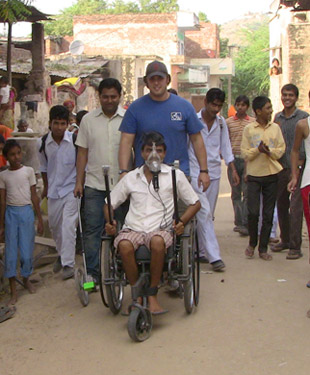Procrastinating? We’ve got just the thing! The YTT have pulled together a series of TED Talks that they LOVE. Grab some popcorn and get comfy, because you’re about to get seriously inspired by these amazing engineering projects.
Amos Winter: The Cheap All-Terrain Wheelchair

What’s this TED talk about?
Affordable accessibility for the disabled, especially those in third world countries.
What’s amazing about it?
That design is a process and that you have to work with the people who are actually using the product in order to have success. Also, it’s amazing how a student/academic was able to create change despite having little experience. And of course that they helped thousands of people in need because they as engineers saw a problem and fixed it.
How did it inspire you?
It’s cool to be able to see that problems can have simple solutions and all there really needs is for a person to put it all together. Also, the amount of collaboration/communication they used to make it work (their persistence).
What surprised you?
The number of people (40 million) who needed wheelchairs but don’t have one. (I’d known that wheelchairs were expensive and basic but it didn’t occur to me how they weren’t suitable for all places). Also, it surprised me that they would make a high end version of the product as well (not only a social enterprise but also a business/commercial/capitalist product). It shows that socially/world- conscious people are increasingly moving towards helping people but also making a profit/business to go along with it (less purely altruistic action).
Did you ever have an idea about developing something yourself that solves a problem in the world? Tell us all about it.
I once met a lady named Ruth Kwakwa from Ghana. She had opened a liberal arts university in Ghana and had come to Canada to talk about her journey to developing and opening Ashesi University. Like Amos Winter, she saw a need and then worked to meet its needs. She had told the audience: “If something aggravates you, find a solution. You should work on it.” After that, I began to notice small things in my life that could be better: how can we design better umbrellas so they don’t flip inside out due to the wind? Why aren’t pens sold with ink refills to prevent the amount of waste generated by disposable pens (why couldn’t everything just be refillable or come with replaceable parts)? How can I promote fixing broken items instead of throwing them away for new ones? Can houses be made more accessible and safe for the growing number of elderly people (the baby boomers)?
I realize that some of the problems may seem trivial compared to the challenges the world faces (poverty, over population, lack of resources, diseases, hunger, climate change) but that is probably because I’ve yet to be truly exposed to those problems and don’t yet fully understand the perspectives of people who face some of those problems.
Over the years, I have campaigned for many organizations and causes: from getting green bins in school to supporting clean water in Kenya to helping run one of the only gay-straight alliance/accepting differences club in the Toronto Catholic District School Board.
I think as I get exposed (on a personal level) to more problems the world faces, I’ll be able to think of more/better solutions.
